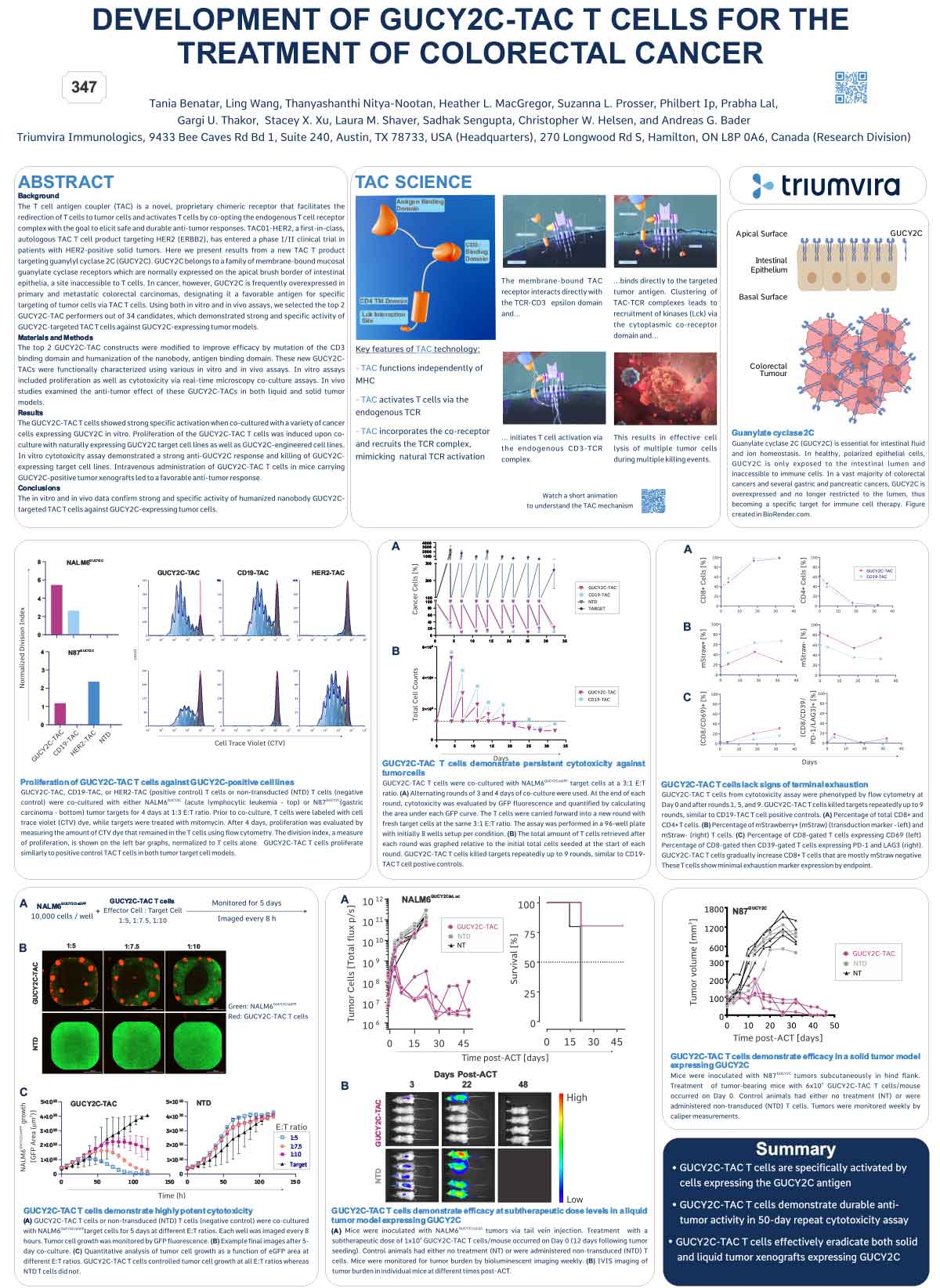ABSTRACT
Background
The T cell antigen coupler (TAC) is a novel, proprietary chimeric receptor that facilitates the redirection of T cells to tumor cells and activates T cells by co-opting the endogenous T cell receptor complex with the goal of eliciting safe and durable anti-tumor responses. TAC01-HER2, a first-in-class, autologous TAC T cell product targeting HER2 (ERBB2), has entered a phase I/II clinical trial in patients with HER2-positive solid tumors. Here we present results from a new TAC T product targeting guanylyl cyclase 2C (GUCY2C). GUCY2C belongs to a family of membrane-bound mucosal guanylate cyclase receptors which are normally expressed on the apical brush border of intestinal epithelia, a site inaccessible to T cells. In cancer, however, GUCY2C is frequently overexpressed in primary and metastatic colorectal carcinomas, designating it a favorable antigen for specific targeting of tumor cells via TAC T cells. Using both in vitro and in vivo assays, we selected the top 2 GUCY2C-TAC performers out of 34 candidates, which demonstrated strong and specific activity of GUCY2C-targeted TAC T cells against GUCY2C-expressing tumor models.
Materials and Methods
The top 2 GUCY2C-TAC constructs were modified to improve efficacy by mutation of the CD3 binding domain and humanization of the nanobody, antigen binding domain. These new GUCY2CTACs were functionally characterized using various in vitro and in vivo assays. In vitro assays included proliferation as well as cytotoxicity via real-time microscopy co-culture assays. In vivo studies examined the anti-tumor effect of these GUCY2C-TACs in both liquid and solid tumor models.
Results
The GUCY2C-TAC T cells showed strong specific activation when co-cultured with a variety of cancer cells expressing GUCY2C in vitro. The proliferation of the GUCY2C-TAC T cells was induced upon coculture with naturally expressing GUCY2C target cell lines as well as GUCY2C-engineered cell lines. In vitro, cytotoxicity assay demonstrated a strong anti-GUCY2C response and killing of GUCY2C-expressing target cell lines. Intravenous administration of GUCY2C-TAC T cells in mice carrying GUCY2C-positive tumor xenografts led to a favorable anti-tumor response.
Conclusions
The in vitro and in vivo data confirm the strong and specific activity of humanized nanobody GUCY2C targeted TAC T cells against GUCY2C-expressing tumor cells.

